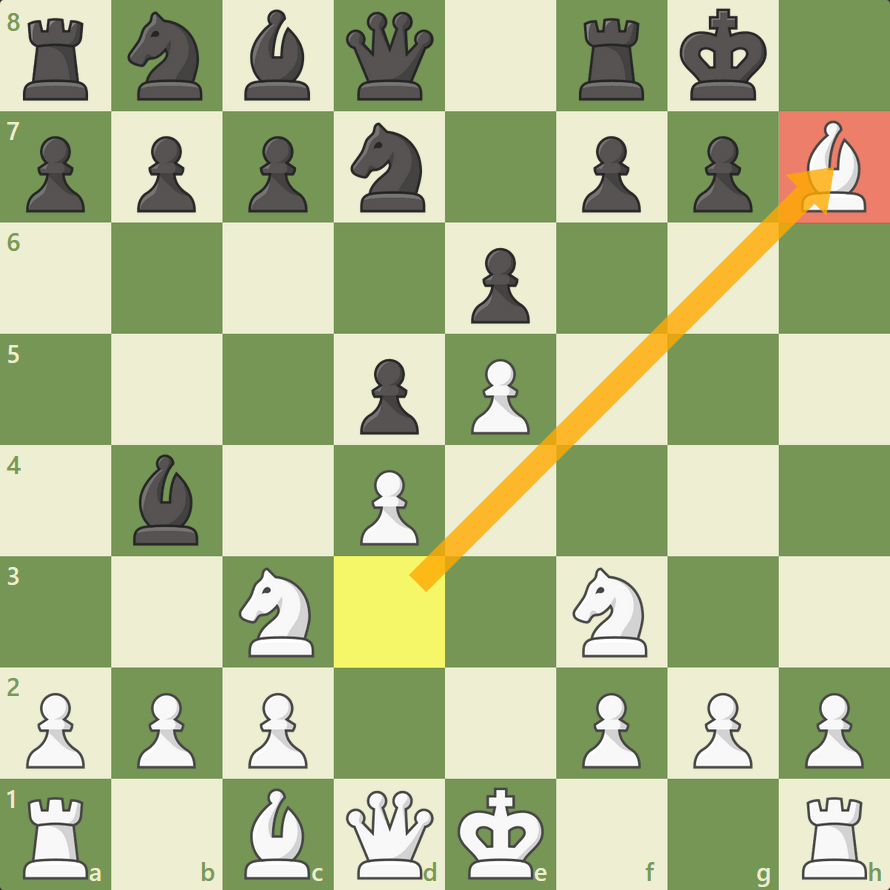The Chessboard's Allure: Why It Reigns Supreme for Strategic Minds
For centuries, strategy games have captivated minds, offering a mental battlefield where cunning and foresight determine victory. Among these, chess and checkers stand as two titans, each with its own strengths. However, for those seeking a deep well of strategic complexity, the chessboard reigns supreme. Here's why players drawn to strategic nuance might choose the checkered squares over the simpler grid. A Symphony of Pieces:
A Symphony of Pieces:
Chess boasts a far richer tapestry of pieces compared to checkers. King, queen, rooks, bishops, knights, and pawns - each with unique movement patterns and varying offensive and defensive capabilities. This diversity creates a dynamic interplay, where every move ripples through the board, impacting possibilities for both players. In checkers, all pieces move identically, limiting the strategic space.
Chess encourages a multi-layered approach. Short-term tactics like capturing pieces are important, but they serve a grander strategy. A player might sacrifice a pawn to open a file for the rook, weakening their position momentarily but enhancing their long-term attacking potential. This ability to think several moves ahead, anticipating your opponent's counter-moves, is a hallmark of chess mastery. Checkers, with its simpler piece movement, makes such long-term planning less crucial. The Art of Maneuver:
The Art of Maneuver:
The varied movement of chess pieces allows for intricate maneuvers. Knights can "jump" over other pieces, rooks control entire ranks and files, and bishops dominate diagonals. This enables tactics like forks (attacking two pieces simultaneously), pins (restricting an opponent's piece movement), and skewers (putting multiple pieces in line for capture with a single move). Checkers, with its unidirectional movement, offers fewer opportunities for such tactical brilliance. The Ever-Evolving Landscape:
The Ever-Evolving Landscape:
Unlike checkers, where capturing pieces reduces the number of options on the board, capturing in chess opens up new possibilities. Captured pieces are removed from the board, creating gaps and opening paths previously inaccessible. This constantly shifting landscape forces players to adapt their strategies on the fly, adding an element of dynamism absent in checkers.
The End Game: A Showcase of Skill
The endgame in chess is a test of pure strategic prowess. With fewer pieces remaining, the focus shifts from capturing to checkmating the opponent's king. Players must utilize the unique strengths of their remaining pieces, maneuvering them into positions that restrict the king's movement and deliver the final blow. Checkers, while having a king capture objective, lacks the endgame complexity due to the fewer piece types and simpler movement patterns.
A Universe of Possibilities:
The vast number of legal moves in chess (on average, 20 possible moves per turn in the opening) creates a near-infinite branching of possibilities. This immense strategic space allows for a near-unending variety of games, with each encounter posing unique challenges. Checkers, with its more limited move options, offers a much smaller pool of possible games, potentially becoming repetitive for strategists seeking constant intellectual stimulation. A Learning Journey Without End:
A Learning Journey Without End:
The depth of chess strategy is such that even the greatest minds haven't fully mastered it. Every game, win or lose, offers an opportunity to learn and improve. Analyzing grandmaster games, studying opening principles, and practicing tactics are just a few avenues for constant chess improvement. This continuous learning curve keeps players engaged for a lifetime, while checkers offers a more finite learning curve.
Beyond the Board:
The skills honed in chess extend beyond the checkered squares. Long-term planning, tactical thinking, and the ability to analyze situations from multiple perspectives are all valuable assets in other aspects of life, from business to personal relationships. Chess, by its very nature, encourages these skills, making it a training ground for the mind.
A Final Note:
This is not to say that checkers lacks merit. It's a fantastic game for teaching basic strategy and spatial awareness, particularly for younger players. However, for those seeking a strategic odyssey of unparalleled depth and complexity, the chessboard beckons. It offers a universe of possibilities, a constant learning curve, and a challenge that continues to enthrall minds for centuries. So, if you're looking to push your strategic thinking to its limits, step onto the chessboard and embark on a journey of intellectual discovery.




























































